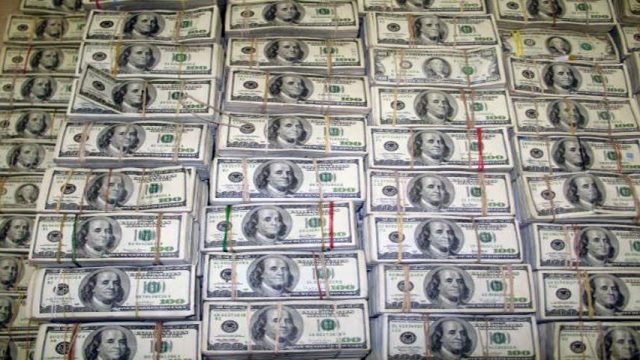North Dakota's Income Tax Collections Soar Even As Rates Are Cut Nearly In Half

During his budget address to the Legislature last week Governor Jack Dalrymlpe, by way of trying to bolster a measly proposal for just $125 million in personal/corporate income tax relief, pointed out that if lawmaker institute his proposed cuts the income tax rates will be nearly 50 percent lower than before 2009.
Collective, that’s not a modest cut, yet paradoxically the state’s general fund revenues from income tax collections continue to soar. According to the most recent revenue report from the Office of Management and Budget, personal income tax collects are up more than $109 million, or 18.9 percent, biennium to date over the previous biennium.
How can it be that income tax collections soar even as the state cuts the tax? It’s because there are more people earning more money in North Dakota. According to numbers obtained by the Associated Press, the number of people filing income tax returns in the state has increased more than 31 percent since 2006, while incomes have increased a whopping 65 percent:
Tax Department figures released to the Associated Press show the number of taxpayers in the state has jumped 37 percent since the state’s oil bonanza began, from 339,000 in 2006 to 466,000 in 2013. Slightly more than 440,000 tax returns were filed in 2012.
Tax Commissioner Ryan Rauschenberger said the increase in income and the number of taxpayers contributes heavily to the state’s robust economy.
“More people are buying more things with that type of income,” he said. “It has an effect on sales tax and the property tax base.”
While the total adjusted gross income has jumped a whopping 108 percent since $14.6 billion was reported in 2006, the average adjusted gross income for individuals dropped from $74,221 in 2012 to $71,538 last year. That’s still far above the average adjusted gross income on 2006 returns, which was about $43,300.
The average income per tax filer is down, as are the number of millionaires (1,041 in 2013 down from 1,126 in 2012), but Tax Commissioner Ryan Rauschenberger says the dips are the result of a) more tax filers bringing down the average and b) some millionaires taking their income out of state.
What’s interesting is that the state’s economic success may actually create problems for those who support eliminating income taxes. Often supporters of eliminating the tax (I’m among them) talk about the dwindling rates North Dakotans pay. The Legislature has cut rates in every biennium since 2009, which you’d think would make elimination easier.
If we’re paying such tiny rates, shouldn’t it be easy to wipe them off the books?
Not with revenues growing the way they have. Despite the rate cuts, income tax collections have done nothing but go up. Meaning that eliminating the income tax would “cost” (for lack of a better term) the state government more today than it would have back in 2006. According to OMB reports, at this point in the 2005-2007 biennium the state had collected just $373 million in income taxes compared to $692 million as of last month.
Governor Jack Dalrymple has proposed an aggressive spending budget, which increases on-going state spending by 12.7 percent after a biennium in which we saw general fund spending grow by more than 60 percent. Couple that with concerns over oil prices falling and it seems unlikely that the state is going to let go of income tax revenues any time soon.




